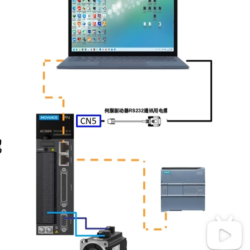Unification Technologies LLC (UTL, United Technologies LLC),
a subsidiary of Acacia, a leading U.S. patent operating company, recently filed
a patent infringement lawsuit against Micron Technology and affiliates in the
Fuzhou Intermediate People’s Court.
According to the court announcement on October11, the plaintiff
UTL sued the defendant Micron Technology and its affiliates for infringement of
its Chinese patent ZL201210539998.3, requesting the court to order the
defendant to cease manufacturing, selling and promising not to sell infringing
products, and requesting RMB 20 million economic compensation and 1 million
joint and several damages.
system, and method for storage space recovery in solid-state storage ” .
An apparatus, system, and method are disclosed for
solid-state storage as cache for high-capacity, non-volatile storage. The
apparatus, system, and method are provided with a plurality of modules
including a cache front-end module and a cache back-end module. The cache
front-end module manages data transfers associated with a storage request. The
data transfers between a requesting device and solid-state storage function as
cache for one or more HCNV storage devices, and the data transfers may include
one or more of data, metadata, and metadata indexes. The solid-state storage
may include an array of non-volatile, solid-state data storage elements. The
cache back-end module manages data transfers between the solid-state storage
and the one or more HCNV storage devices.
After analyzing this patent was first invented by David
Flynn (David Flynn), co-founder and CTO of Fusion-IO (FIO), a U.S. startup
company (and the first inventor of this patent). Fusion-IO led the way in the
development of PCIe-SSD. When the company was founded in 2005, when hard disks
were mainly used as peripheral memory and away from the CPU, Fusion-IO’s
innovation was to use NAND Flash for SSDs instead of hard disks.
The advantage
of SSD over hard disk is the performance, but its performance advantage cannot
be realized when its location is distanced from CPU. Therefore, Fusion-IO
innovatively adopted PCIe as the interface for SSDs to connect the CPU,
achieving a performance crush on traditional hard drives, and then was applied
on a large scale by head companies such as Facebook. Later, as the price of
NAND Flash dropped dramatically, SSD performance compared with traditional hard
disk greatly exceeded the price of comparable, this innovation created an epoch-making
disruptive product. The company went public in 2011 with an IPO on the NYSE
valued at $2 billion.
on this PCIe-SSD product that the entire industry found this route to be technically
and commercially viable, and the market size was so large that it attracted a
lot of investment, including later firming up confidence to invest in 3D NAND. Fusion-IO
didn’t have much luck. By 2013, the core team was leaving, and Sandisk was
acquired by Sandisk in 2014, which was acquired by Western Digital in 2015. China’s
Ziguang Group later tried to acquire Western Digital, but it failed in the end.
So, Fusion-IO’s batch of patents that year was also tossed around many times.
Like this Chinese patent was transferred from FIO Semiconductor Ltd. to United
Technologies Ltd. via Acacia in June 2021.
interesting, as the U.S. government just imposed yet another tougher sanction
on Chinese semiconductors on October 7, which included Changjiang Storage and
Changxin Storage as the most heavily impacted. In other words, it is a good
time for foreign memory manufacturers to expand the Chinese market. Perhaps
this is also a good time for UTL to put pressure on Micron. In fact, two years
ago the two disputes in the U.S. courts started the fire. On June 5, 2020, UTL
sued Micron, Dell and HP in the U.S. District Court for the Western District of
Texas for infringement of three of its patents US8,762,658, US8,533,406, and
US9,632,727 at the same time. These patents are the same family of patents
shown in the Google Patents. The judge presiding at the time was none other
than the famous Judge Albright. Shortly thereafter, the case between Dell and
HP was withdrawn, and it is suspected that the two sides have reached a
settlement. The case with Micron, however, is still in progress.
again, should still continue to pressure Micron, the choice is also in recent
years by foreign patent owners, especially the NPE very favored Fuzhou Central
Court prosecution. In the U.S. suit, UTL also mentions that these patents
“make a valuable contribution to the SSD industry” and mentions that
several SSD market competitors, including Intel, Google, Samsung, SK Hynix, Western
Digital, Toshiba, etc., have been licensed. So it seems that the only major
storage giant left is Micron.
So that’s why a second battlefield will be opened in China.
The $21 million lawsuit damages may not be what UTL is looking for, it’s more
about the “injunctive relief” from the Fuzhou Central Court, which
may be a good means to force Micron Technology to sign the license agreement.
patents as in the US, but only one patent was used. But in this patent,
“independent claims literally belong to a very general technology, and
even have the ability to slay the whole industry”. In particular, the same
family of this patent was first filed in 2007, when FIO was established.
common feature is that the writing is very complicated and difficult to
understand, but the innovation and foundation are very good. In this way, the
situation of Micron Technology against UTL in Fuzhou Central Court is not
optimistic.
semiconductor companies: including startups like FIO, there must be real
innovation, and this innovation must be carefully laid out and written in
patent applications, only then can the law better protect the interests of a
startup. This is also the reason why FIO could later go public and be valued at
$2 billion. Even if the company later fell apart, it could still be heavily
acquired by Sandisk with its intellectual property and other assets, and after
more than a decade, it could still sweep the giants of the storage industry
with its patents and achieve patent licensing for almost the entire storage
industry.
companies consider that patent applications only need a few thousand dollars.
Such thinking model should be changed. FIO is just a very common one in the
U.S. semiconductor industry, but in terms of innovative patent protection, it
is impossible to get a set of patents that can really protect the core
technology without tens of thousands of dollars of investments in agency
writing.






